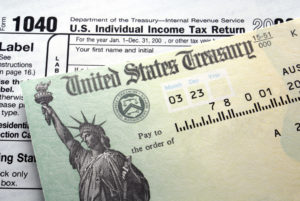
Wage garnishment does not add additional seasoning to your income.
Wage garnishment does not add additional seasoning to your income. It’s a punishment for long-term non-payment of debts. Such a consequence is court-mandated and won’t always be triggered by back taxes you haven’t covered yet. Other possible causes include child support, consumer debts, and even student loans. Since there are certain legal protections in place, here’s what you should know about this unpleasant circumstance and how to deal with it.
The Types of Wage Garnishment
First off, let’s break down the two different types of wage garnishment and how they typically play out. In the standard scenario, creditors contact your employer. Then, they demand to siphon off a portion of your take-home pay. This collection mechanism goes towards paying down your debt.
Non-wage garnishment, on the other hand, operates somewhat differently. This tactic is more commonly known as a bank levy. In this case, the creditors are permitted to access your existing bank account directly. Once this process begins, you’ll be notified by the local court system in your jurisdiction. Court fees and interest add to the total amount of money that you’ll be on the hook for as well.
How Debts Cannibalize Your Wages
Next, let’s look at the way debts can consume your salary. Strict federal limits curtail this situation so that only your so-called “disposable income” is affected. Deductions meant for tax purposes, or Social Security reasons are left alone. Here is a quick look at what the garnished wages go to:
- Unpaid credit card/medical bills or personal loans and other consumer debts;
- Child support and alimony payments;
- Federal student loans;
- Taxes
Which Rights Are You Legally Entitled To?
As we mentioned before, you have legal actions at your disposal. That said, you must understand and invoke these actions for them to help you in any meaningful way:
- Legal notification of said garnishment is required;
- You can file a dispute if you believe that the notice contains incorrect information;
- You can also do this if you believe you don’t owe the debt at all;
- Sources of income provided by Social Security and veterans benefits are considered exempt. However, once they reach your bank account, they become subject to seizure.
- You cannot be fired after one wage garnishment. Even so, multiple garnishments will eliminate this temporary protection.
Keep an eye out for part two, in which we explain other options you have. We’ll also discuss your next steps if the garnishment becomes a financial hardship.
trust the professionals at the Harding group
Unlike other accounting firms, The Harding Group, located in Annapolis, MD, will never charge you for consultations and strive for open communication with our clients.
Are you interested in business advising, tax preparation, bookkeeping and accounting, payroll services, training + support for QuickBooks, or retirement planning? We have the necessary expertise and years of proven results to help.
We gladly serve clients in Annapolis, Anne Arundel County, Baltimore, Severna Park, and Columbia. If you are ready to take the stress out of tax time, contact us online or give us a call at (410) 573-9991 for a free consultation. For more tax tips, follow us on Facebook, Twitter, YouTube, and LinkedIn.


 Back
Back